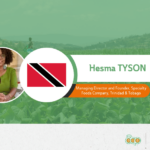(Main) European Union guidelines
- 19/03/2020
- Posted by: Gaetan Dermien
- Category: Uncategorized
The EU guidelines set out the principles of an integrated approach to effective border management to protect health while preserving the integrity of the internal market.
Regarding transport of goods and services, the EU guidelines state that control measures should not undermine the continuity of economic activity and should preserve the operation of supply chains, particularly relating to essential goods such as food supplies. Professional travel to ensure transport of goods and services should be enabled, including the facilitation of safe movement for transport workers, including truck and train drivers, pilots and aircrew, across internal and external borders.
Regarding the supply of goods, Member States should preserve the free circulation of all goods, in particular essential products such as medicines, medical equipment, essential and perishable food products and livestock. Member States should designate priority lanes for freight transport (e.g. via ‘green lanes’) and consider waiving existing weekend bans. No additional certifications should be imposed on goods legally circulating within the EU single market. Transport workers, especially those delivering essential goods, should be able to circulate across borders as needed and their safety should in no way be compromised. Member States should ensure constant provisioning to meet social needs, to avoid panic buying and the risk of dangerous overcrowding of shops, which will require proactive commitment from the entire supply chain.




![EU and GB approval changes (January-May 2024) 9-FFM+-[ENG]](https://news.colead.link/wp-content/uploads/2024/06/9-FFM-ENG-150x150.jpg)